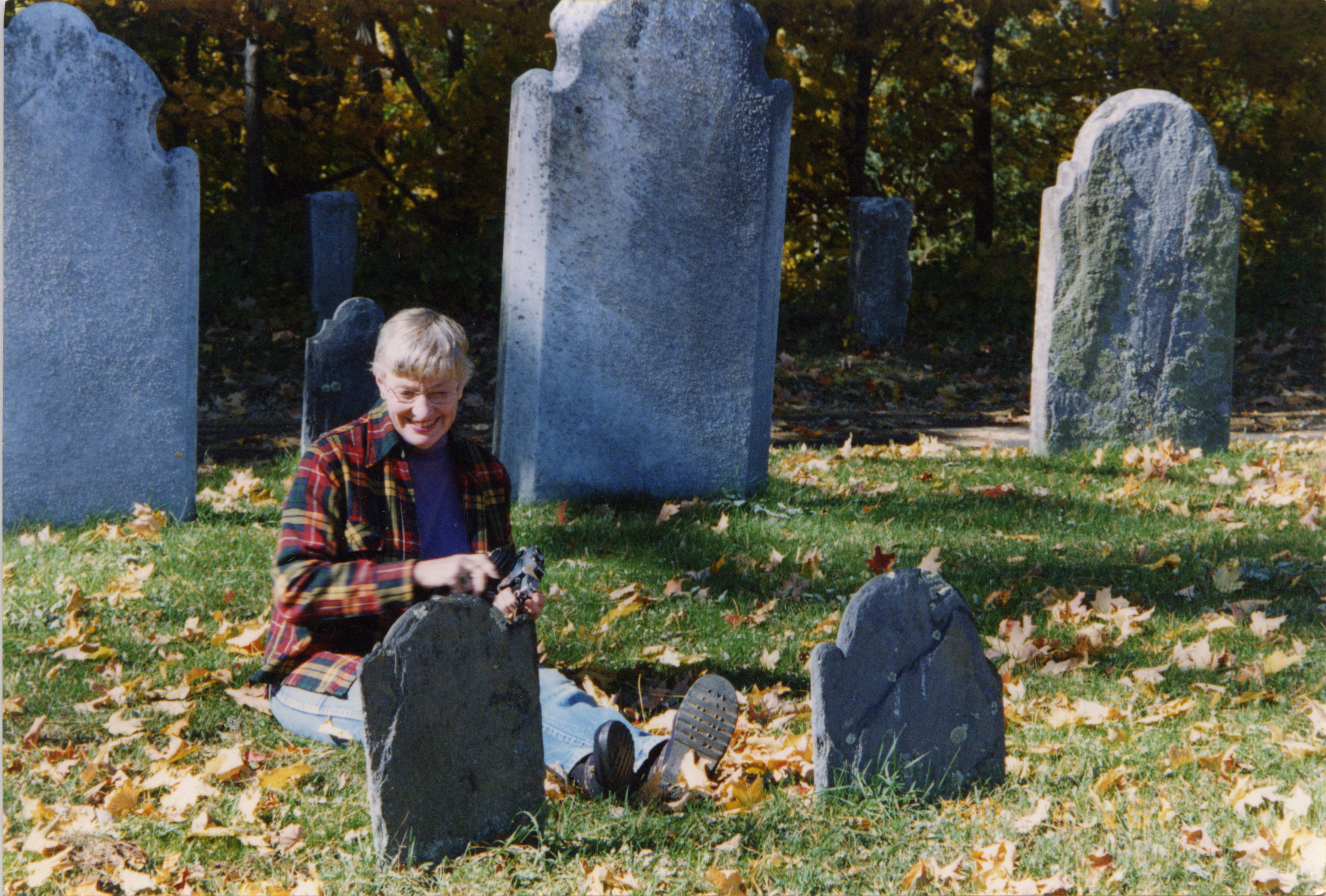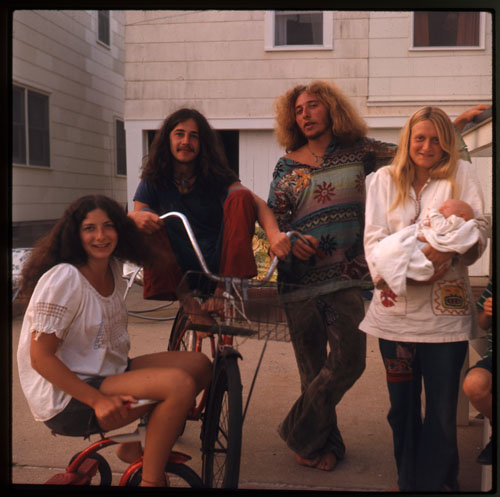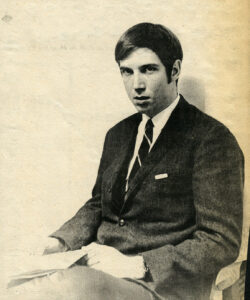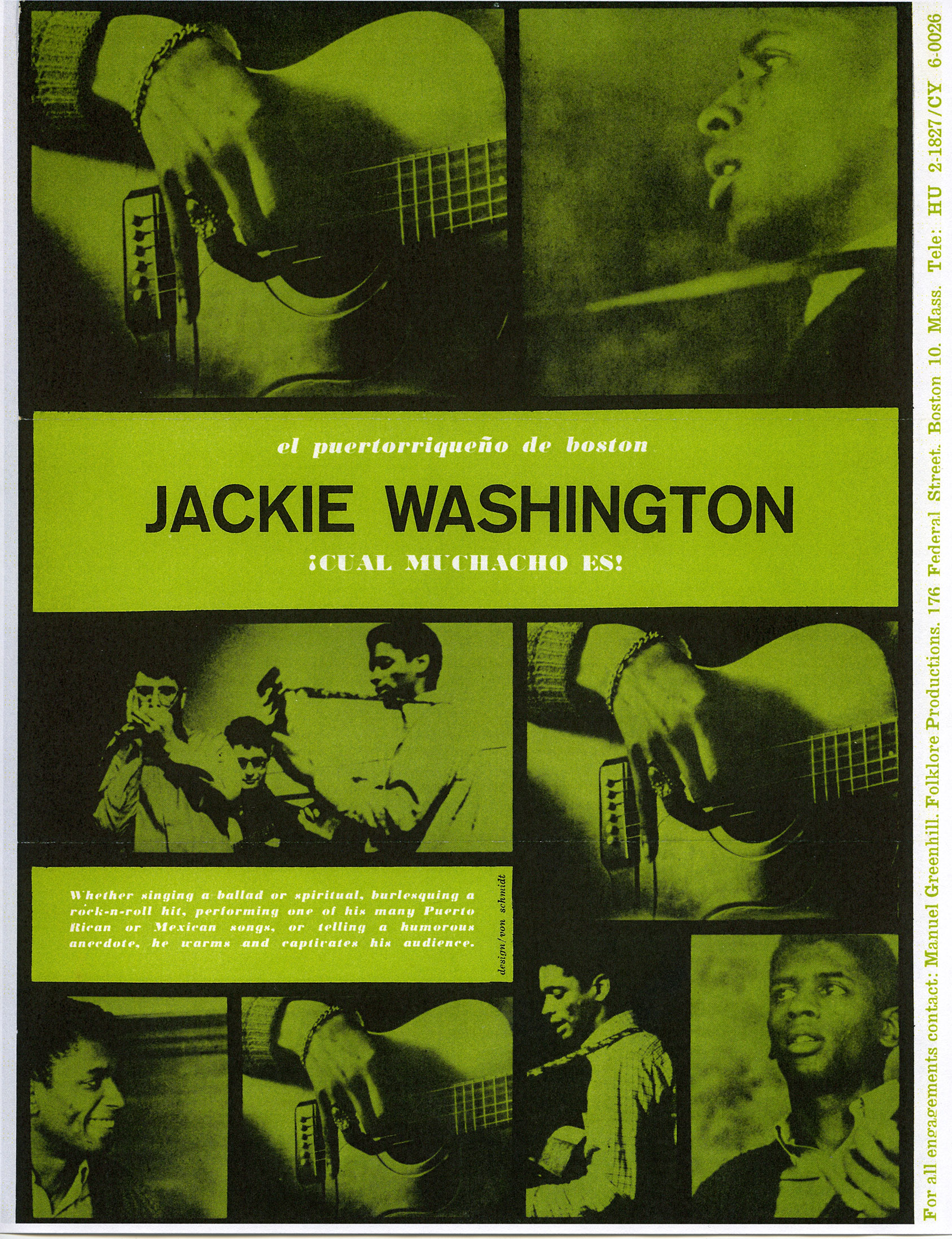Marie Ferre Collection

Esma-Marie N’Doi Booth was born into a missionary family in the Belgian Congo in Dec. 1932, and attended school there until entering Boston University. She earned her degree in art and art history in 1954, the same year she married the philosopher Frederick Feree, and for much of the next four decades, she worked as an archivist at the colleges and universities where her husband found an academic home: Vanderbilt, Mount Holyoke, and Dickinson. After retiring to Northfield, Mass., in 2000, she became active in local history and historic preservation, including working as archivist for the Association for Gravestone Studies. She died in Greenfield, Mass., in 2016 at the age of 83.
The Ferre collection contains articles, news clippings, and notes on New England gravestones, along with several dozen images taken by Ferre in graveyards during the early 2000s, primarily in Massachusetts.




